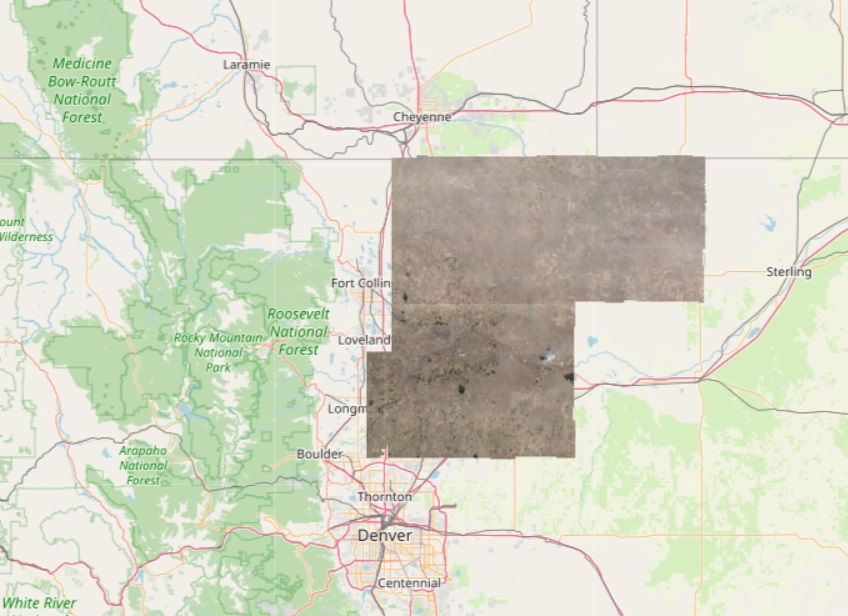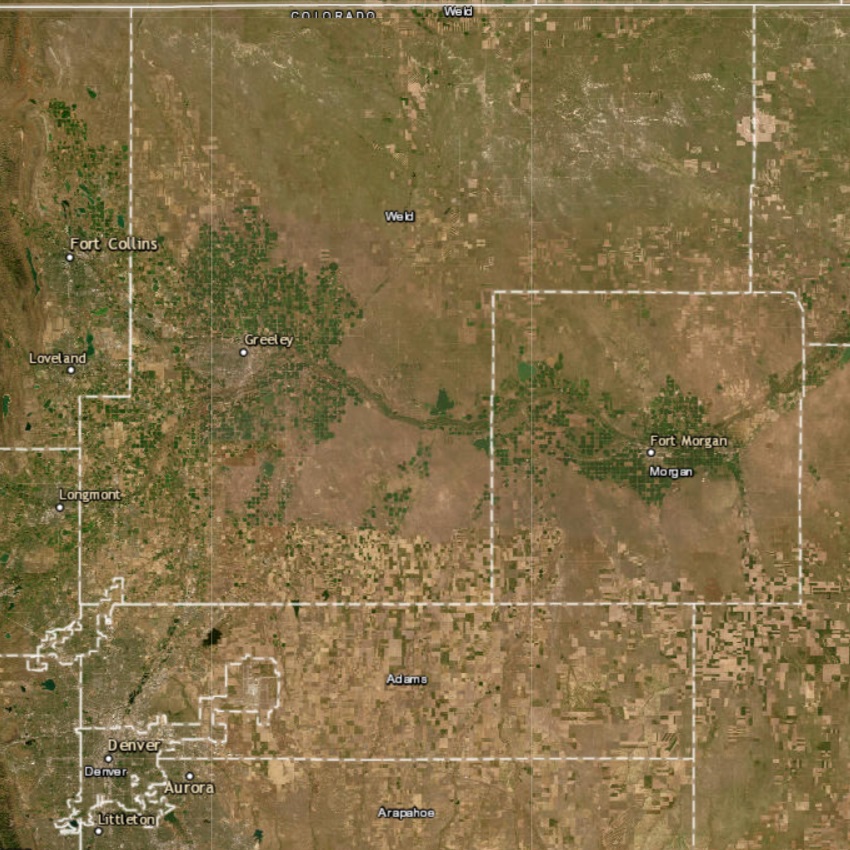September 2024, Vol. 251, No. 9
Features
Profile of Regulations on Colorado County Points to Private Property Safeguards
By Richard McDonough, U.S. Correspondent
(P&GJ) — Colorado is among the largest producers of oil and natural gas in the United States, and the bulk of the energy production in the Centennial State is found in one county: Weld County.

During the first half of 2024, according to the county, it was “the number one producer of oil and gas in the state,” producing 83% of the state’s crude oil and 56% of its natural gas.
Despite how rural the county might appear – and make no mistake large portions of the county are rural – Weld has the Colorado’s eighth-largest population, with 328,981 residents, according the U.S. Census Bureau.
On Aug. 5 marked the fifth anniversary of the Weld County Oil and Gas Energy Department (WCOGED) in Colorado, the department that helps regulate portions of the oil and gas pipeline network that crisscrosses the third-largest county by area in the state and contains 16,000 wells, including shut-ins.
All pipelines that are 12 inches or larger and carry oil or natural gas within Weld County are regulated by the department.
In 2023, the WCOGED reported that 105,778,480 barrels of oil and 796,986,517 Mcf were produced in the county, which serves as a production hub despite not containing any refineries.
Instead, these energy supplies are transported to Oklahoma, Texas, and beyond, by interstate pipelines for refining into finished products. pipelines carry the products to sites in.
The regulation of the oil and gas industry by Weld County comes in addition to regulations by the Federal government and the State of Colorado.
“We want the pipelines to be known on the record for the public,” said Jason Maxey, director of the department. “Pipelines that are smaller than 12 inches in diameter are able to be installed as use-by-right within the unincorporated parts of Weld County, regardless of the zoning district.”
He indicated that more than 90% of Weld County is zoned agricultural.
“A right-of-way permit is required if a pipeline crosses underneath a county road in the unincorporated areas of the county,” Maxey continued. “The overwhelming number of pipelines are placed under county roads through boring rather than opening the roadway to lay a pipeline.”
Some aspects of the development of the oil and natural gas industry in Weld County were overseen through the county’s Planning and Zoning Department prior to 2019.
It was in that year that the county made the decision to create a separate department to regulate the industry.
The WCOGED was formed in direct response to Colorado legislation. Senate Bill 19-181 was passed by the state legislature in 2019 and signed into law by Gov. Jared Polis on April 16, 2019.
“This legislation changed the regulatory structure in Colorado for the oil and gas industry,” Maxey said. “With this law, local communities were allowed to have more local land-use regulations of the oil and gas industry.”

He explained that that new law “opened the door” for counties to have different rules from each other. “Weld County decided that a dedicated department would be important to local landowners.”
In a statement from the county, it was noted that the district was “…created to firmly establish the county’s local control over mineral resources in unincorporated Weld County.”
The work done by the department involves reviewing and approving several types of operations in the oil and gas industry.
One of the key functions of the involves the location assessment for pipeline (LAP) process. An LAP is required for the location or construction of a pipeline 12 inches in diameter or greater in all zone districts. This year, seven applications were made with the WCOGED for LAP permits. Five were issued and two applications are being processed.
“The processes are designed to solicit input from nearby residents and the companies,” said Maxey. “We do this by respecting private property rights, the health and safety of the people, and the impact on the environment and wildlife.”
In addition to LAP permits, the department reviews applications for each Weld Oil and Gas Location Assessment (1041 WOGLA). These assessments are required “…of operators prior to their construction of improvements related to oil and gas exploration and production and prior to the issuance of building permits,” according to a statement from the county. “This process includes notice to nearby homeowners and municipalities.
Additionally, Weld County requires tank batteries and associated equipment and meter skids or meter houses to be permitted, and oil and gas producers must submit permitting applications, detailing the number and type of equipment included at the site and the names of wells being supported by the equipment.

These permit applications are reviewed for compliance to current zoning regulations, which include minimum setback and zone district requirements and whether the site is located within a flood plain area. The fees associated with these permits are included in the Building Fee Schedule.
In 2024, there were 45 location assessment permits received to date, according to the WCOGED, with 44 approved so far.
Beyond the unincorporated sections of Weld, incorporated municipalities in the county may also require land use permitting of oil and gas operations.
On July 5, updates to Chapter 21 of the Weld County Code went into effect “…to bring further clarity to oil and gas permitting…” These changes were the result of previous votes by the Weld County Board of Commissioners.
“Oil and gas development is a prime economic driver in Weld County, and it’s important that our permitting process evolve to encourage development while continuing to ensure the health, safety and welfare of the public and the environment,” said Kevin Ross, chair of the Weld County Board of Commissioners. “We’ve seen positive results with our WOGLA process since assuming 1041 authority over oil and gas permitting in 2019, and we believe those results will continue with these changes.”
According to a statement from Weld County issued on July 1, “some of the changes involve simply updating outdated language, such as replacing the ‘Colorado Oil and Gas Conservation Commission’ with the ‘Colorado Energy and Carbon Management Commission.’”
In addition, the statement from Weld County indicated that among other changes in the County Code were those that gave the WCOGED “…the ability to review permitting for Class II, or injection wells, which were previously under the Department of Planning and Zoning…”
Additional regulations may become more localized in Colorado in the future.
Currently, the federal government has primary enforcement responsibility for Class VI injection wells in most areas of the country. “Class VI injection wells inject carbon dioxide for long-term storage to reduce emissions to the atmosphere,” according to a statement from Environmental Protection Agency (EPA).
On January 5, the EPA approved an application from the state of Louisiana regarding Class VI injection wells. This EPA rule – effective one month later, on Feb. 5 – gave Louisiana primary enforcement responsibility for this type of well. Louisiana thus joined two other states – North Dakota and Wyoming – which have been granted primacy over Class VI injection wells by the EPA.
“Colorado is also attempting to gain primacy on regulating Class VI injection wells,” said Maxey. “We are watching the process. We would want to have a say in the matter.”
The statement issued by Weld County in July indicated that as part of the updates to Chapter 21 of the Weld County Code, the WCOGED was also accorded the ability to review permitting for Class VI wells.
Richard McDonough writes about energy infrastructure-related issues in the United States, including the column The Nuacht of Pipelines. He can be reached at newsaboutamerica@gmx.us.





Comments